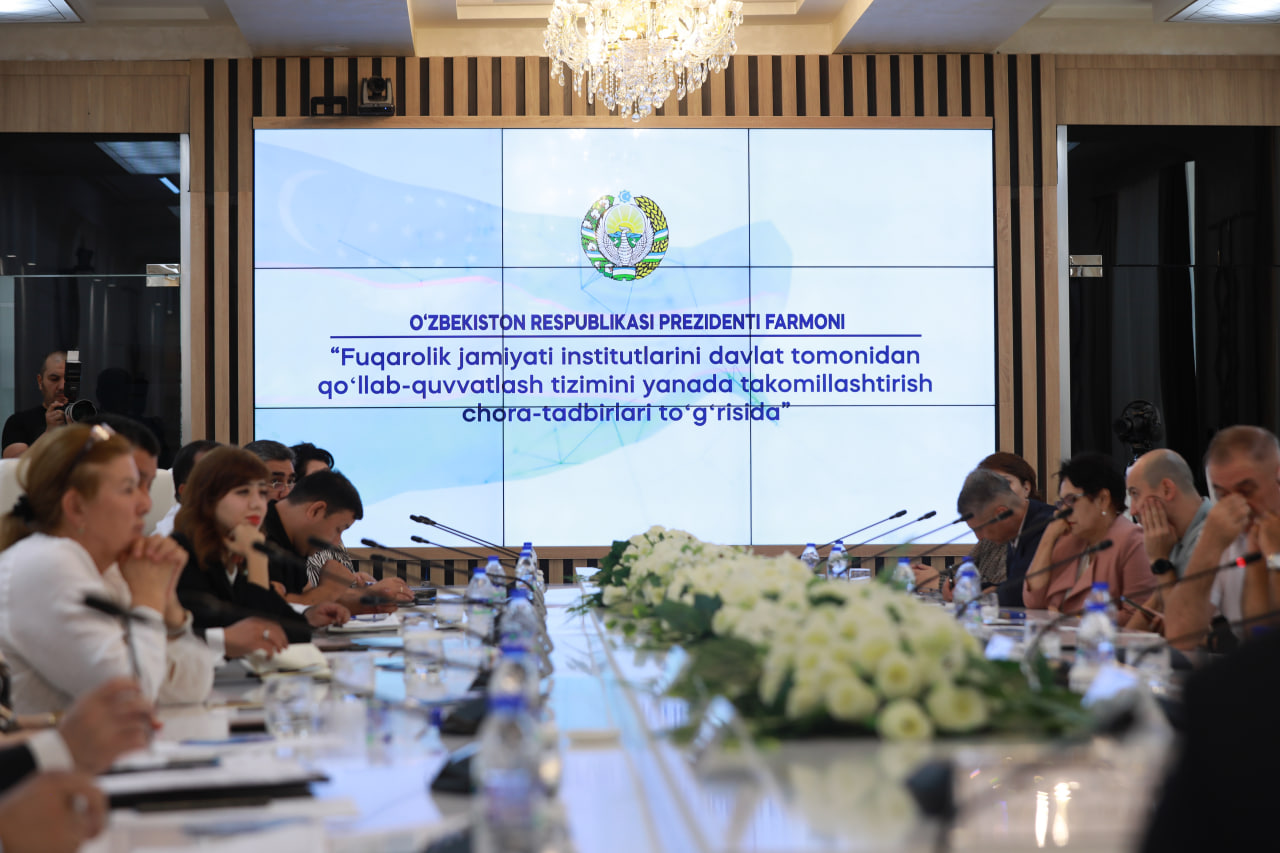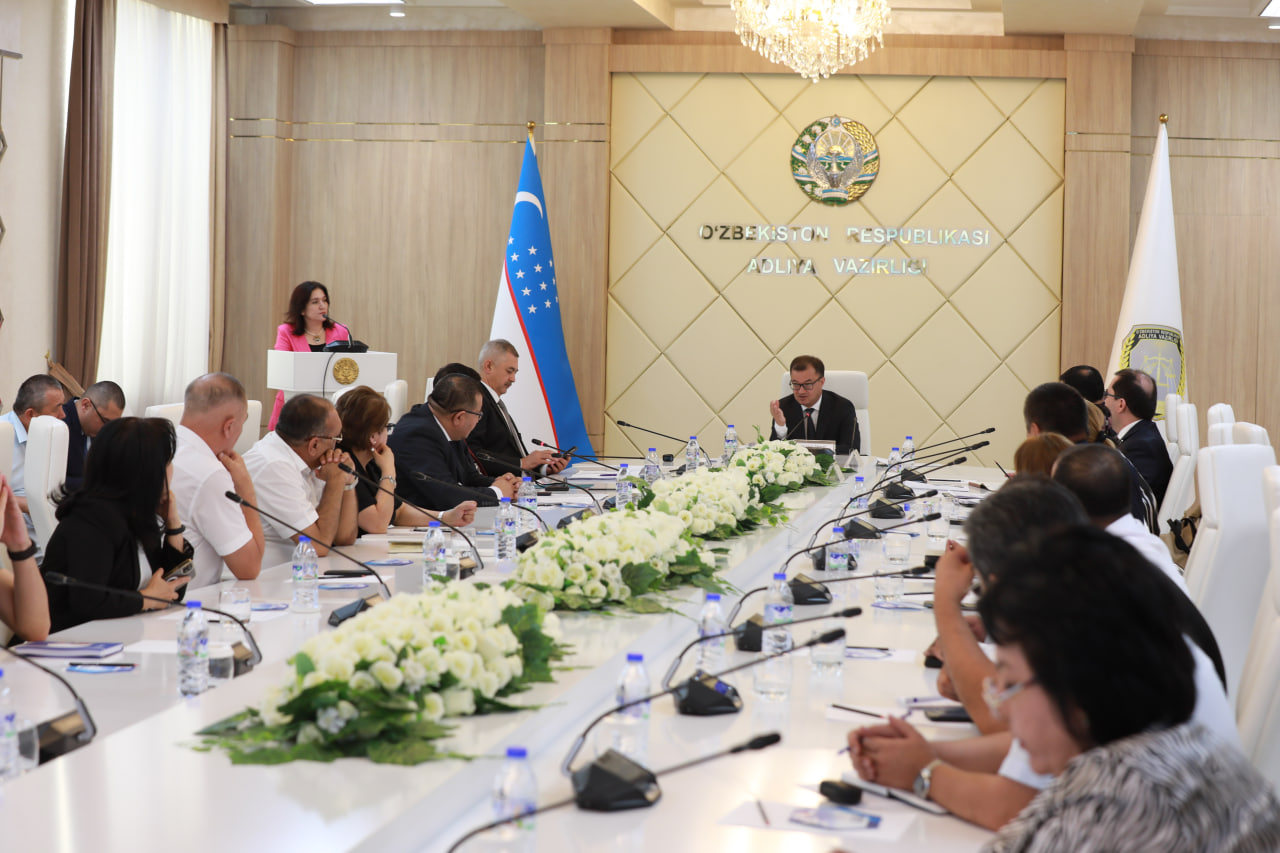27.08.2024
221
State bodies are given the right to finance projects of civil society institutions on the basis of social partnership up to 1000 times of BCA without competitions
Today, on August 27, a press conference was held at the Ministry of Justice to explain to the general public the essence of the Decree of the President of the Republic of Uzbekistan "On measures to further improve the system of state support of civil society institutions".
It was attended by representatives of the Ministry of Justice, the leadership of the National Association of Non-Governmental Non-Profit Organizations of Uzbekistan and other NGOs, as well as D. Akhmedova, an employee of the press service of the The Republican Center for the Study of Public Opinion "Ijtimoiy Fikr", who answered the questions of journalists and bloggers.
As noted, the necessary organizational and legal conditions for the active participation of civil society institutions in state and community management have been created in Uzbekistan, and state support mechanisms have been improved.
In particular, a separate chapter dedicated to civil society institutions was included in the newly revised Constitution, they were recognized as constitutional institutions, and the concept of civil society development was adopted in 2021-2025. Public funds have been established under the Parliament and local Councils of People's Deputies. In particular, 718 billion soums were allocated from the state budget for the support of civil society institutions in the last seven years (12 times more than in 2008-2016). In the next 3 years, 1,600 projects worth 83 billion soums were implemented through regional funds.
Nearly 10,000 non-governmental non-commercial organizations are freely operating in the fields of protection of citizens' rights, democratic values, education, medicine, culture and other fields, and about 70,000 people work in them.
The Decree signed by the President of the Republic of Uzbekistan is a continuation of the above reforms and is aimed at creating a system of state support for civil society institutions based on the principle of transparent and healthy competition, as well as additional conditions for increasing the effectiveness of socially useful programs.
The decree envisages the following new reforms to support civil society.
In particular, the Public Fund for the Support of Civil Society Institutions and its regional divisions will be established under the parliament, the addressability of social projects will be ensured, and bureaucracy will be put to an end.
A single electronic platform aimed at ensuring the transparency of all processes related to the allocation of state subsidies, grants and social orders to civil society institutions will be launched.
According to the decree, the following mechanisms aimed at the development of social partnership are being introduced:
- every year, state bodies conduct open dialogue with representatives of social order contests and civil society institutions;
- state bodies are given the right to finance social partnership projects initiated by civil society institutions up to 1,000 times BCA without tenders;
- every year the Government adopts a program on the involvement of civil society institutions on the basis of social partnership in the implementation of socio-economic development programs.
In order to popularize socially important activities, civil society institutions are given the following privileges:
- income tax and social tax rates are reduced by 50% for a period of 3 years within the framework of state grants and social order projects;
- Starting from January 1, 2025, the state fee charged for the registration of disabled people, veterans, women's and children's organizations is being reduced by 2 times;
- the non-taxable amount of charitable donations to persons in need of social protection from sponsoring organizations is increased from the current 15 million soums to 34 million soums (100 times the BCA).
The decree brings the system of state support to civil society institutions to a new level, sets high standards of transparency of these processes.
Most importantly, it opens up new opportunities for direct participation of citizens and civil society institutions in state and community management, in particular, creates organizational and legal conditions for the practical development of the institution of social partnership, increases the effectiveness of public control over the activities of state bodies.
This decree was a very important step in strengthening the role and importance of non-governmental non-profit organizations that protect the rights and interests of citizens, express their wishes and aspirations in the process of fundamental changes in our country.
At the end of the conference, proposals and recommendations on improving the activities of civil society institutions and providing practical assistance were accepted.



